If you were captivated by the raw intensity and dark themes of 'Hatred' (2016), this article is for you. We’ve curated a list of 10 gripping movies and shows that share its visceral storytelling, moral ambiguity, and unflinching brutality. Whether you're drawn to psychological thrillers or gritty dramas, these recommendations will satisfy your craving for similarly intense narratives.
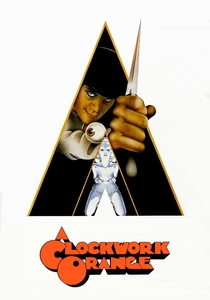
A Clockwork Orange (1971)
Description: A dystopian exploration of ultraviolence, free will, and societal control, featuring a charismatic yet horrifying protagonist who embodies chaotic hatred.
Fact: Stanley Kubrick withdrew the film from UK distribution after receiving death threats. The 'Nadsat' slang used in the film was created by author Anthony Burgess, combining Russian and Cockney influences.
 Watch Now
Watch Now 
Romper Stomper (1992)
Description: A brutal depiction of skinhead culture and racial violence, focusing on the destructive power of hate groups. The film's unflinching portrayal of extremism resonates with dark, confrontational storytelling.
Fact: Russell Crowe's breakout role, which he prepared for by immersing himself in Melbourne's skinhead subculture. The film sparked controversy for its graphic violence and political themes.
 Watch Now
Watch Now 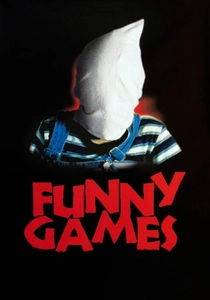
Funny Games (1997)
Description: A psychological horror film that confronts the audience with senseless violence and cruelty, breaking the fourth wall to question the viewer's complicity in media consumption of hatred.
Fact: Director Michael Haneke shot an almost identical American remake in 2007, frame-for-frame. The film's villains wear white gloves, a visual motif representing their detachment from morality.
 Watch Now
Watch Now 
American History X (1998)
Description: Explores themes of racism, violence, and redemption through the lens of a former neo-Nazi. The film's raw portrayal of hatred and its consequences aligns with intense, morally complex narratives.
Fact: Edward Norton's performance earned him an Academy Award nomination for Best Actor. The film's iconic curb-stomping scene was achieved using a prosthetic head.
 Watch Now
Watch Now 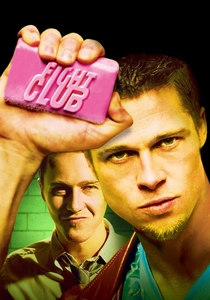
Fight Club (1999)
Description: Delves into toxic masculinity, anarchist ideology, and self-destructive behavior, portraying how suppressed rage can manifest in dangerous, hate-fueled movements.
Fact: The film's twist ending was so carefully guarded that even some crew members didn't know it until filming. Brad Pitt actually chipped a tooth during one of the fight scenes but kept it for authenticity.
 Watch Now
Watch Now 
The Believer (2001)
Description: Examines the psychological turmoil of a Jewish man who becomes a neo-Nazi, delving into self-hatred and ideological extremism. The film's exploration of internalized hatred and identity crisis is gripping.
Fact: Based loosely on the true story of Daniel Burros, a KKK member who was secretly Jewish. Ryan Gosling's intense performance was praised for its depth and complexity.
 Watch Now
Watch Now 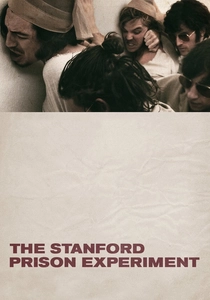
The Stanford Prison Experiment (2015)
Description: Depicts the infamous psychological study where college students quickly descended into cruelty, showcasing how power and dehumanization fuel hatred and violence.
Fact: The real experiment was halted after just six days due to extreme behavior. The film's cast included several actors who later became stars, like Ezra Miller and Tye Sheridan.
 Watch Now
Watch Now 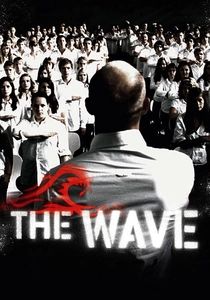
The Wave (2008)
Description: A German film that demonstrates how easily ordinary people can be swayed by authoritarian ideologies, mirroring the destructive power of groupthink and hatred.
Fact: Inspired by the real-life 'Third Wave' experiment conducted in a California high school in
 Watch Now
Watch Now 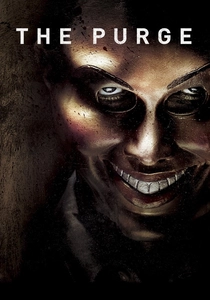
The Purge (2013)
Description: A dystopian thriller where societal hatred and violence are legally sanctioned for one night annually, exploring the dark side of human nature when constraints are removed.
Fact: The entire film was shot in just 20 days. The concept was inspired by creator James DeMonaco's frustration with traffic, imagining a world where aggression could be released legally.
 Watch Now
Watch Now 
Imperium (2016)
Description: Follows an FBI agent infiltrating a white supremacist group, highlighting the dangers of radicalization and domestic terrorism. The film's tense, psychological approach to extremism is compelling.
Fact: Daniel Radcliffe shaved his head for the role, marking a dramatic departure from his Harry Potter image. The script was inspired by real undercover FBI operations.
 Watch Now
Watch Now 








